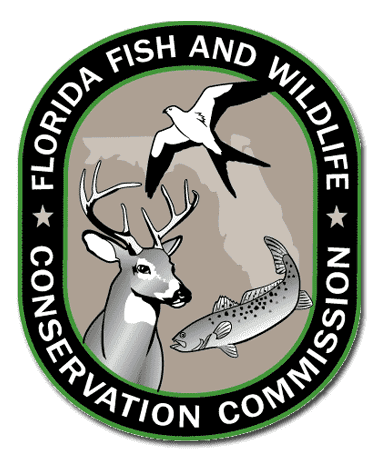Florida FWC to Meet June 27-28 in Palm Beach Gardens

The Florida Fish and Wildlife Conservation Commission (FWC) will meet June 27-28 at the PGA National Resort in Palm Beach Gardens to discuss the bear management plan, federal endangered species designations, changes in hunting and saltwater harvest opportunities and the newest phase of its anchoring and mooring pilot program, among other issues.
The beginning of the first day will be a salute to the military. FWC staff will wear special attire (shirts or hats) both days to recognize and honor the branches of the military. Members of the public are encouraged to wear similar attire either day if they would like to be part of this recognition.
Following the salute to the military, discussion of administrative matters, adoption of the consent agenda and a report from Executive Director Nick Wiley, staff will discuss the five-year report on the science plan for Dry Tortugas National Park Research Natural Area. This report will include information on the effectiveness of the Dry Tortugas park in protecting shallow-water marine habitat, ensuring species diversity and enhancing the productivity and sustainability of fish populations throughout the region.
Also on Wednesday, June 27, Commissioners will focus on conservation of the Florida black bear, the state’s largest land mammal. They will consider taking final action on adopting the FWC’s first management plan for the black bear, which has rebounded from as few as 300 in the wild in the 1970s to more than 3,000 today.
The goal of the 10-year plan is to “maintain sustainable black bear populations in suitable habitats throughout Florida for the benefit of the species and people.” Public input was invited and utilized in drafting the bear management plan and will be important to its implementation. The seven bear management units created in the plan provide opportunities for public participation in decisions on managing local bear populations and reducing human-bear conflicts. The latest draft of the bear plan, which includes changes made after the most recent public-input period ended June 1, is available at MyFWC.com/Bear.
The Commissioners also will decide on removing the black bear from the state’s list of threatened species and adopting a new FWC rule making it illegal to harass, injure or kill a bear in Florida.
One butterfly species, the Miami blue, may be re-designated and three others added to Florida’s list of endangered and threatened species to stay consistent with their new federal status. The Okaloosa darter and Atlantic sturgeon also may be re-designated at this meeting to stay consistent with their new federal status.
Hunting issues follow. Commissioners will be asked to approve advertising two proposed amendments as soon as possible so they can become final rules. One prohibits the take of wild hogs with the use of dogs in the Spring Creek Unit of the Big Bend Wildlife Management Area. The other would clarify that the executive director may create special regulations on established FWC-managed areas by executive order, when unique circumstances arise.
Following staff reports on quota hunt permit transferability and the agency’s switch to a new license vendor, the FWC will present the Hunter Safety Instructor of the Year Award, followed by presentation of the Wildlife and Resource Management Achievement Award by the Florida Sportsmen’s Conservation Association.
To wrap up the day, the public will be invited to comment on items not on the agenda.
On Thursday, June 28, after recognizing the 75th anniversary of the Wildlife and Sport Fish Restoration programs, FWC Commissioners will take up marine fisheries issues, which include updates from the Gulf of Mexico Fishery Management Council and the South Atlantic Fishery Management Council meetings, marine-life management changes, bay scallops and snook.
Following discussion of the draft rule on several amendments affecting marine-life species, the Commission is expected to consider final approval of these changes at its September meeting in Tampa. The proposed changes include a three-year prohibition on the harvest of the giant Caribbean sea anemone; removal of unicorn filefish, sand perch and dwarf sand perch from the marine life rule; clarifying that the reefs built by Sabellarid tube worms are a type of live rock; clarifying that size limits for angelfish extend to any hybrid forms of the species and that the size limits for angelfish and butterfly fish apply to all harvesters, including recreational; expanding the definition of snapping shrimp to include all species in the snapping shrimp family; and extending into state waters the prohibition on the harvest of black corals.
After two years of season extensions with little effect on the bay scallop population, the Commission will consider permanently extending the bay scallop recreational harvest season by two weeks.
Following action on a boating issue (see below), Commissioners will review an updated stock assessment on snook and determine whether or not the recreational harvest of the species should reopen in Gulf of Mexico state waters. The season is currently closed through Aug. 31, via an executive order. The closure was initiated in 2010 after a severe cold spell negatively impacted the snook population.
The boating issue on Thursday’s agenda is a staff presentation on an anchoring and mooring pilot program ordinance for the city of Sarasota. Stakeholders in Sarasota have developed a proposed ordinance for non-live-aboard vessels outside marked mooring fields. Commission approval is necessary before Sarasota can enforce the ordinance.
Once again, the public will be invited to comment on items not on the agenda.
After that, the Commissioners will elect a new chair and vice chair, effective immediately.
Anyone requiring special accommodations to participate in the meeting should advise the FWC at least five calendar days prior to the June 27 meeting by contacting the FWC’s Office of Human Resources at 850-488-6411. If you are hearing- or speech-impaired, contact the FWC using the Florida Relay Service at 800-955-8771 (TDD) or 800-955-8770 (voice).
To see the full agenda and links to background reports, go to MyFWC.com/Commission and select “Commission Meetings.”

